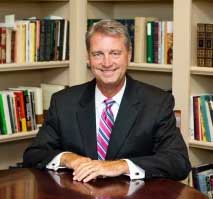 Dr. David W. Hall, pastor of the Midway Presbyterian Church, Powder Springs, Georgia, returns today with the fourteenth in our series of Election Day Sermons. As a collection, these sermons present the reader with a great opportunity to explore the theology of the church-state relation. When speaking of elections and elected officials in the government, what is right and proper for a pastor to say from the pulpit? And do the standards exhibited in these sermons remain valid to our day and time? Has what is lawful and proper changed in any way? Clearly there are many questions and we pray that our presentation of this series will help you begin to think through these matters.
Dr. David W. Hall, pastor of the Midway Presbyterian Church, Powder Springs, Georgia, returns today with the fourteenth in our series of Election Day Sermons. As a collection, these sermons present the reader with a great opportunity to explore the theology of the church-state relation. When speaking of elections and elected officials in the government, what is right and proper for a pastor to say from the pulpit? And do the standards exhibited in these sermons remain valid to our day and time? Has what is lawful and proper changed in any way? Clearly there are many questions and we pray that our presentation of this series will help you begin to think through these matters.
“Civil Magistrates Must be Just, Ruling in the Fear of God”
by Charles Chauncy (May 27, 1747)
Charles Chauncy (1705-1787) was one of the most influential pastors in Boston during his life. He received his theological training at Harvard and served as pastor of First Church for nearly 60 years. He wrote numerous pamphlets between 1762-1771 against the British proposal to impose a Bishop in America. This sermon preached in 1747, addressed to rulers (the Governor, the council, and the Massachusetts House of Representatives), called them to be just and frequently to recall their subordination to God. Original punctuation has been preserved. He drew upon an often used text from 2 Samuel 23—a passage that was a slam dunk for pastors comparing candidates to unchanging norms. He began: “there are none in all the Bible, applicable to civil rulers, in their public capacity, of more solemn importance.”
Viewing these as the last sentiments of David, Chauncy’s outline was:
- There is a certain order among mankind, according to which some are entrusted with power to rule over others.
- Those who rule over others must be just, ruling in the fear of God.
- The whole will then be applied to the occasions of the day.
In his first section, an apology for government in general, Chauncy observed: “Order and rule in society, or, what means the same thing, civil government, is not a contrivance of arbitrary and tyrannical men, but a regular state of things, naturally resulting from the make of man, and his circumstances in the world.” Human sin necessitated this. As both Calvin and Madison had noted, “If men were angels, no government would be necessary.” While government in general was ordained by God, the particulars could and did vary.
Government was “not a matter of mere human prudence, but of moral necessity. It does not lie with men to determine at pleasure, whether it shall or shall not take place; but, considering their present weak, exposed and dependent condition, it is unalterably right and just there should be rule and superiority in some, and subjection and inferiority in others: And this therefore is invariably the will of God; his will manifested by the moral fitness and reason of things.”
However, under the second head, the manner of rulers was prescribed. The first quality (and the one with the most discussion in this sermon) was for ruler to be just. One of Chauncy’s full elaborations of justice was:
They should do it by appearing in defense of their liberties, if called in question, and making use of all wise and suitable methods to prevent the loss of them: Nor can they be too active, diligent or laborious in their endeavors upon this head: Provided always, the privileges in danger are worth contending for, and such as the people have a just right and legal claim to. Otherwise, there may be hazard of losing real liberties, in the strife for those that are imaginary; or valuable ones, for such as are of trifling consideration.
They should also express this care, by seasonably and faithfully placing a proper guard against the designs of those, who would rule in a despotic manner, to the subversion of the rights naturally or legally vested in the people.
They were to be just in their use of power (not encroaching due liberties) and also just in regard to “the laws by which they govern.” He articulated this second rung of justice as “They should not, when upon the business of framing and passing acts, suffer themselves to be swayed by any wrong bias, either from self-will, or self-interest; the smiles or frowns of men greater than themselves; or the humor of the populace: But should bring the proposed laws to a fair and impartial examination.” He warned against “framing mischief by a law.” Just rulers would also punish evildoers and maintain honest economic standards.
Surely with the book of Proverbs’ admonition toward just weights and measures in mind, Chauncy also applied:
And if justice in rulers should show itself by reducing the things that are bought and sold to weight and measure, much more ought it to be seen in ascertaining the medium of trade, as nearly as may be, to some determinate value. For this, whether it be money, or something substituted to pass in lieu of it, is that for which all things are exchanged in commerce. And if this, which is of such universal use in the affair of traffic, be a thing variable and uncertain, of one value this week, and another the next, it is difficult to conceive, how justice should take place between man and man, in their dealings with one another.
Justice also called for right execution of laws and for the appointment of just persons to carry out those just laws. Justice was called for in terms of debt—not a light matter; and justice was to be a guarantor of liberties. Not only could liberties be threatened by those of high office, but Chauncy also warned about excessive populism: “The men who strike in with the popular cry of liberty and privilege, working themselves, by an artful application to the fears and jealousies of the people, into their good opinion of them as lovers of their country, if not the only stanch friends to its interests, may, all the while, be only aiming at power to carry every thing according to their own sovereign pleasure: And they are, in this case, most dangerous enemies to the community.”
A ruler could, thus, err in many ways. The standards for office were high, according to the Hebrew standards and to those of early America. Chauncy put it this way:
If it is their business to act as executioners of justice, they must faithfully inflict the adjudged sentence: In doing of which, though there may be room for the exercise of compassion, especially in the case of some sort of debtors; yet the righteousness of the law may not be eluded by needless, much less fraudulent delays, to the injury of the creditor.
In fine, whatever their trust is, whether of less or greater importance, they must exercise it with care, fidelity, resolution, steadiness, diligence, and an entire freedom from a corrupt respect to men’s persons, as those who are concerned for the honor of government, and that its laws may take effect for the general good of the community.
He charged the General Court to apply themselves to these standards of justice. He further reminded his listeners that they were responsible to God, specifically telling them “that they are accountable to that Jesus, whom God hath ordained to be the judge of the world, for the use of that power he has put into their hands.” The latter part of this sermon provides a discussion of the fear of the Lord, with the injunction that rulers were to keep that in mind in their activities and decisions. This aspect was salutary as follows: “But no restraints are like those, which the true fear of God lays upon men’s lusts. This habitually prevailing in the hearts of rulers, will happily prevent the out-breaking of their pride, and envy, and avarice, and self-love, and other lusts, to the damage of society; and not only so, but it will weaken, and gradually destroy, the very inward propensities themselves to the various acts of vice. It naturally, and powerfully, tends to this: And this is the effect it will produce, in a less or greater degree, according to the strength of the religious principle, in those who are the subjects of it.”
Chauncy’s sermon wraps up with specific charges to the rulers to apply these standards. Somehow, I doubt that the need for fear of God as discussed above, or the requirement to be just, has been altered by time or circumstance.
A printed copy of this sermon is available in my 1996 Election Day Sermons and is also available in Ellis Sandoz, Political Sermons of the American Founding Era (Indianapolis: Liberty Fund, 1998). The sermon is online at: http://quod.lib.umich.edu/e/evans/N04742.0001.001?rgn=main;view=fulltext.
By Dr. David W. Hall, Pastor
Midway Presbyterian Church

 The committee to whom was referred the demise of Rev. David Herron, who died on the 29th of April, 1900, would submit to Synod the following minute. In the death of our esteemed brother for over fifty years a representative of General Synod, as a missionary in Northern India, our church has lost a man and minister eminent for missionary spirit, a high order of talent, Christian graces, and a temper and disposition which endeared him to all who knew him. His long service in missionary work in India, and his wide acquaintance with the needs and natives of India render his death an almost irreparable loss to our mission in the East.
The committee to whom was referred the demise of Rev. David Herron, who died on the 29th of April, 1900, would submit to Synod the following minute. In the death of our esteemed brother for over fifty years a representative of General Synod, as a missionary in Northern India, our church has lost a man and minister eminent for missionary spirit, a high order of talent, Christian graces, and a temper and disposition which endeared him to all who knew him. His long service in missionary work in India, and his wide acquaintance with the needs and natives of India render his death an almost irreparable loss to our mission in the East.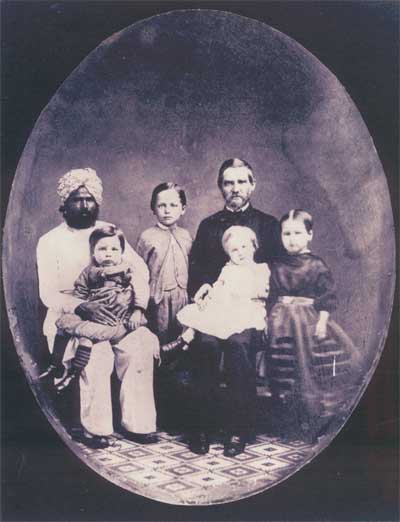
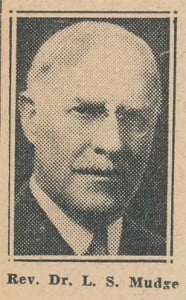

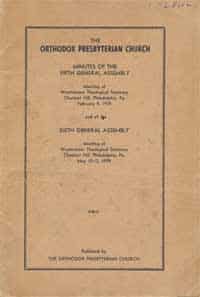
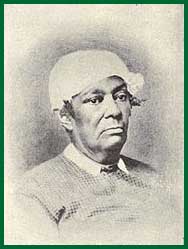 History does not record the date of her birth in slavery. But we do know that it was around the year of 1798. We do know that the place of her birth was . . . Princeton, New Jersey. And she took the name of her slave owner master, an attorney named Robert Stockton. Obviously, slavery was not restricted to the South.
History does not record the date of her birth in slavery. But we do know that it was around the year of 1798. We do know that the place of her birth was . . . Princeton, New Jersey. And she took the name of her slave owner master, an attorney named Robert Stockton. Obviously, slavery was not restricted to the South.